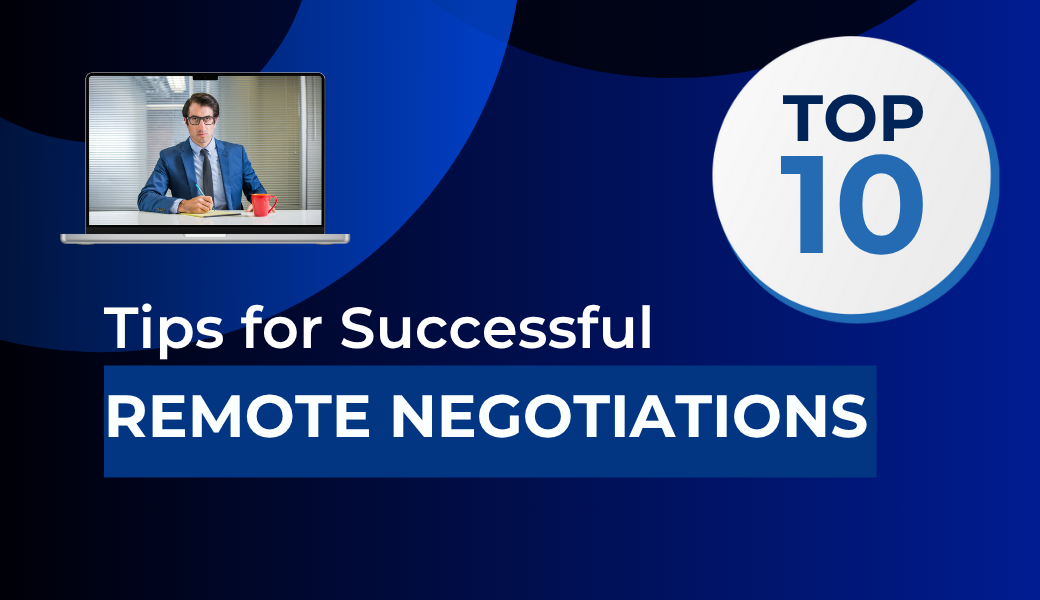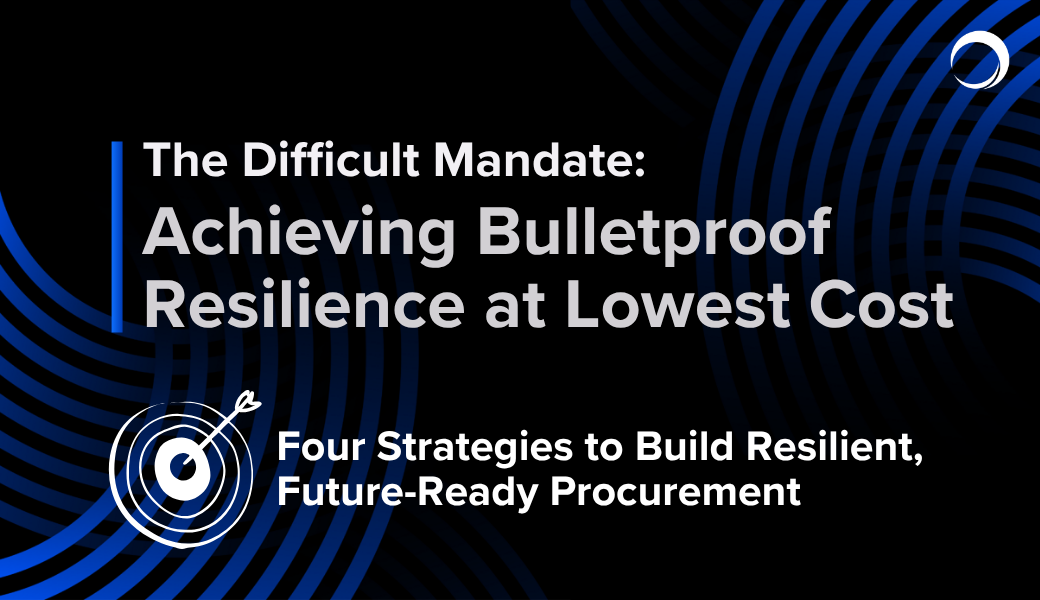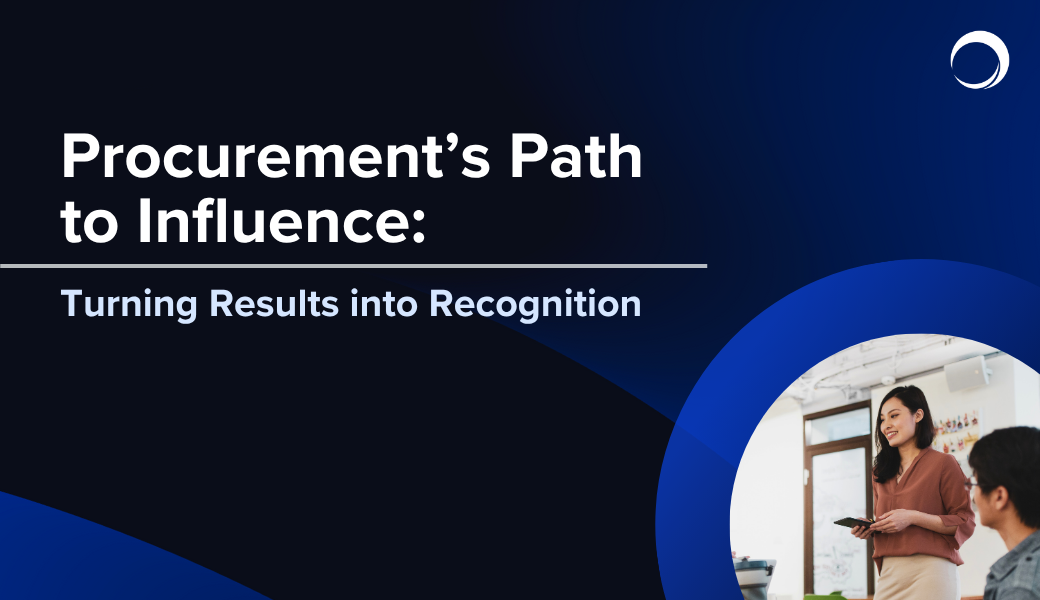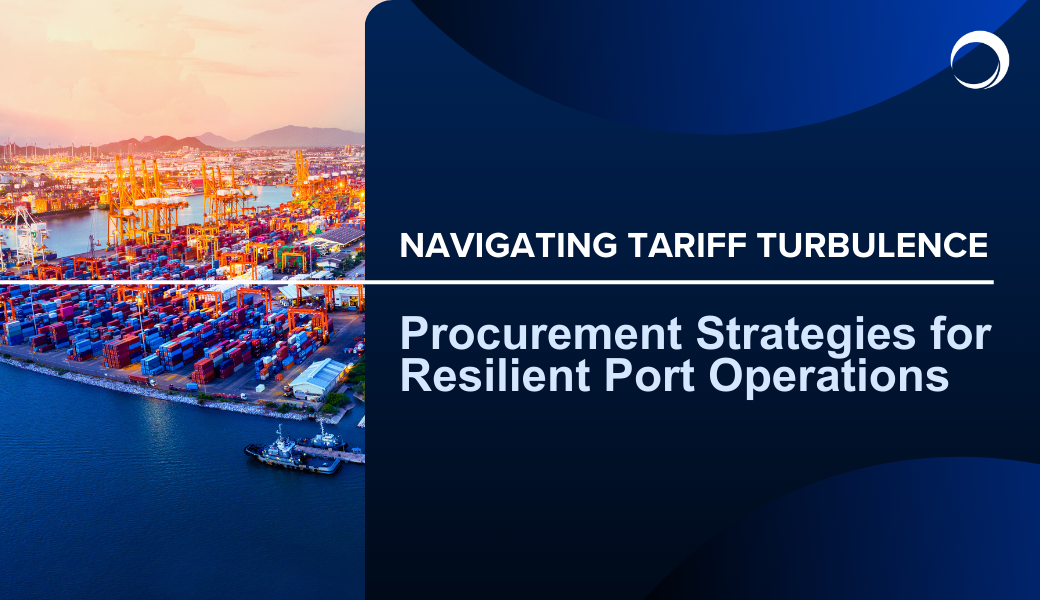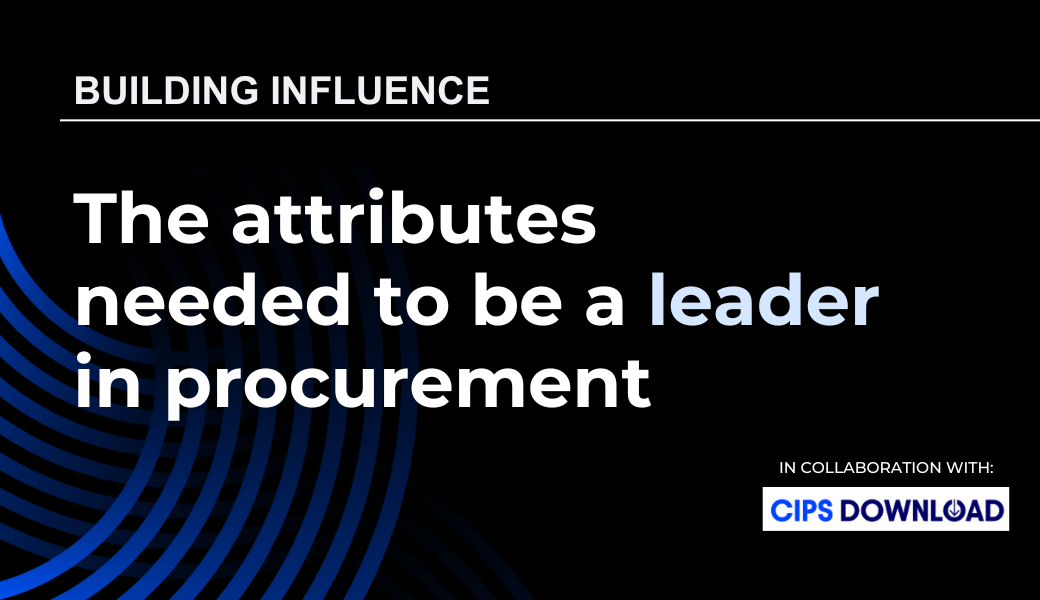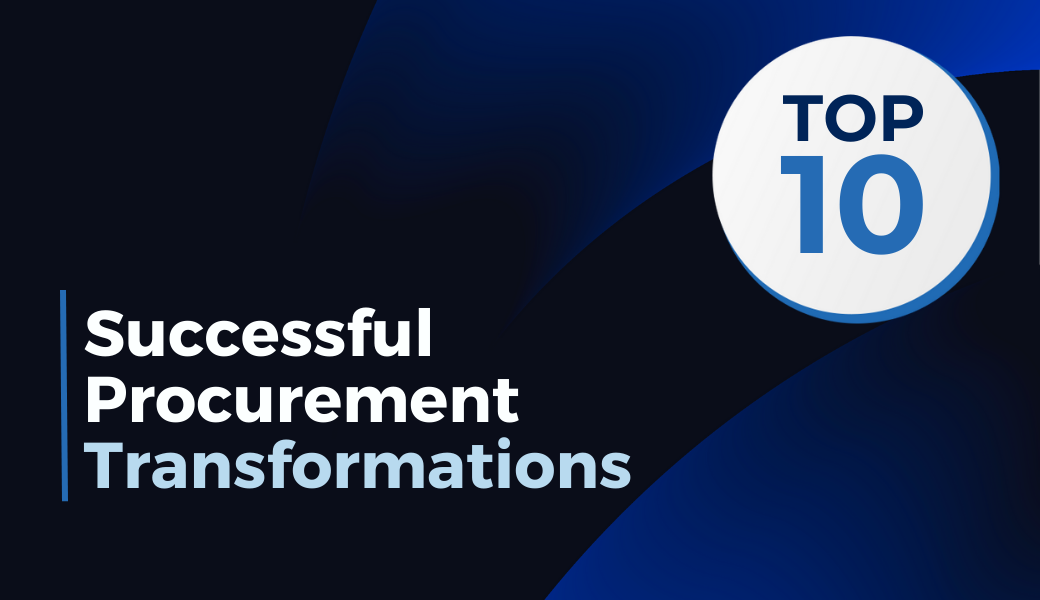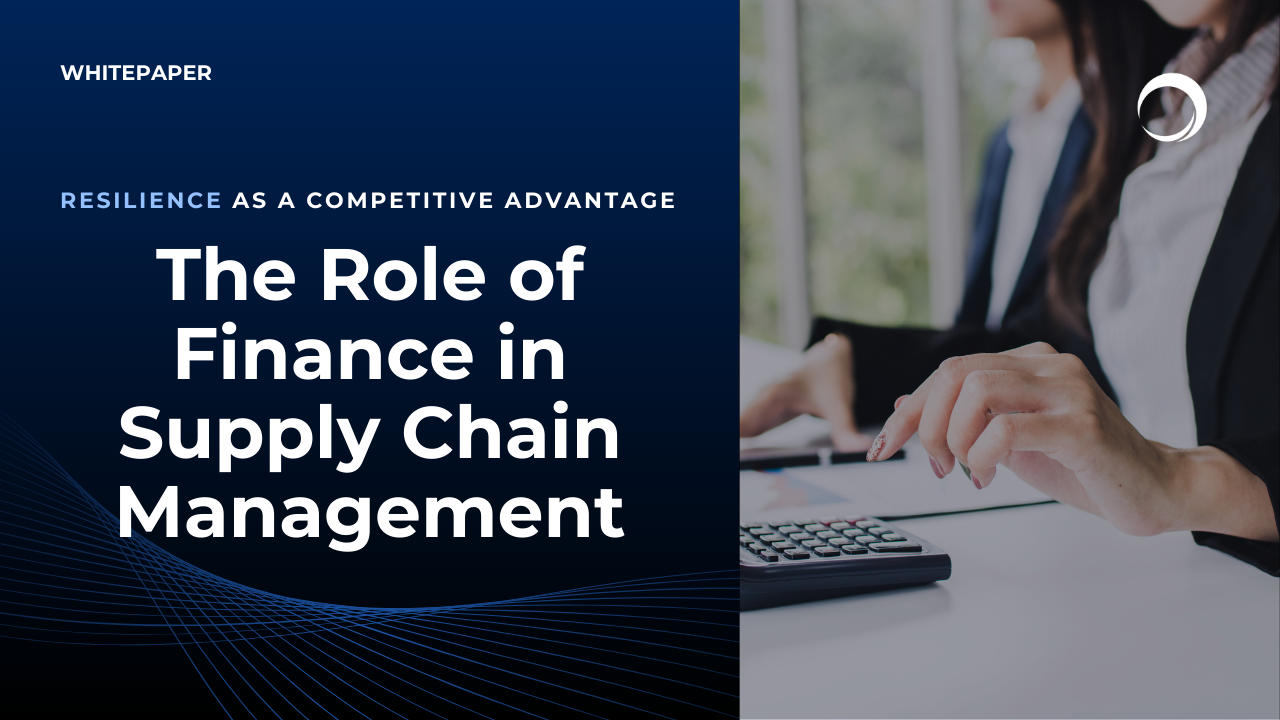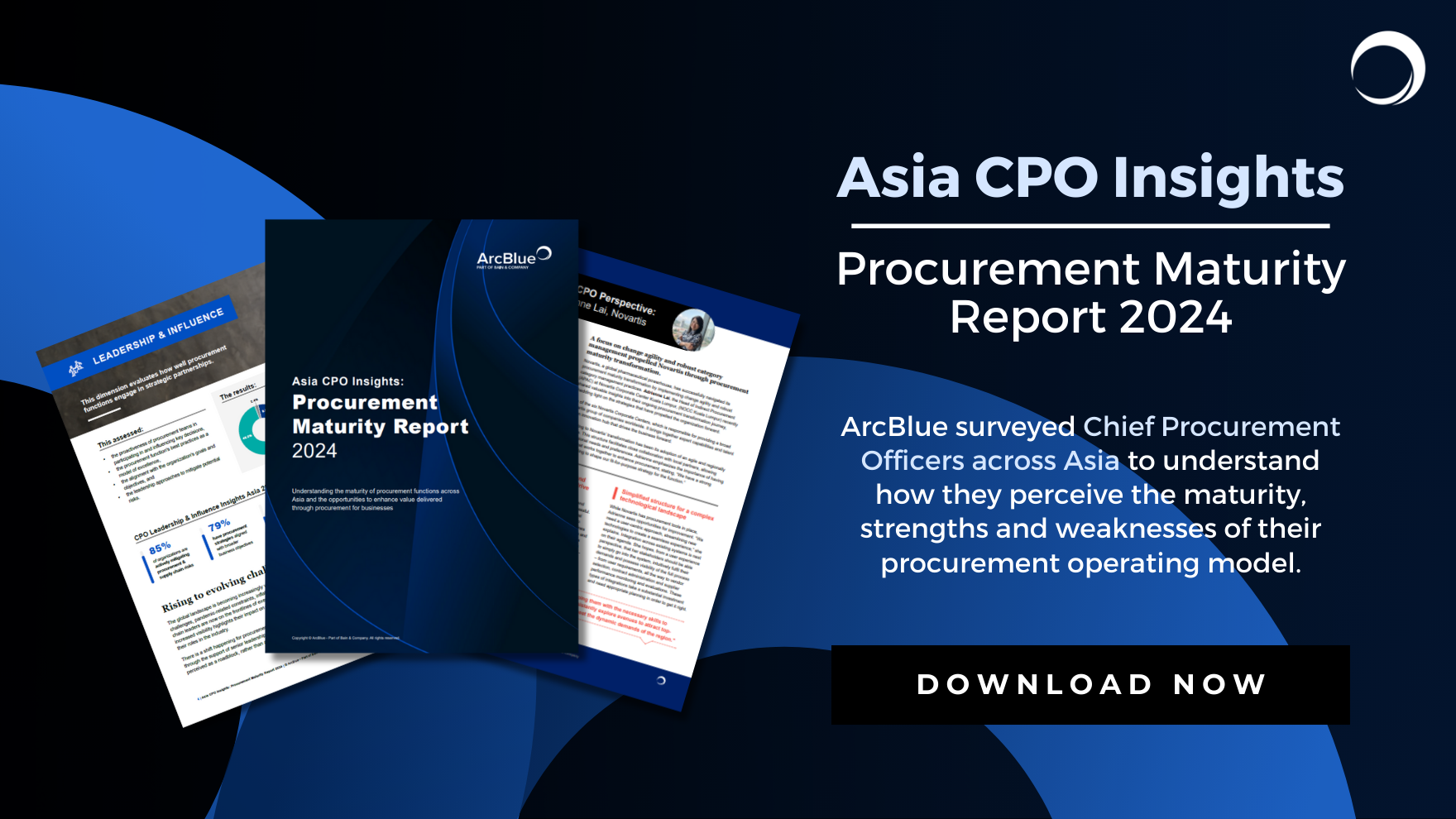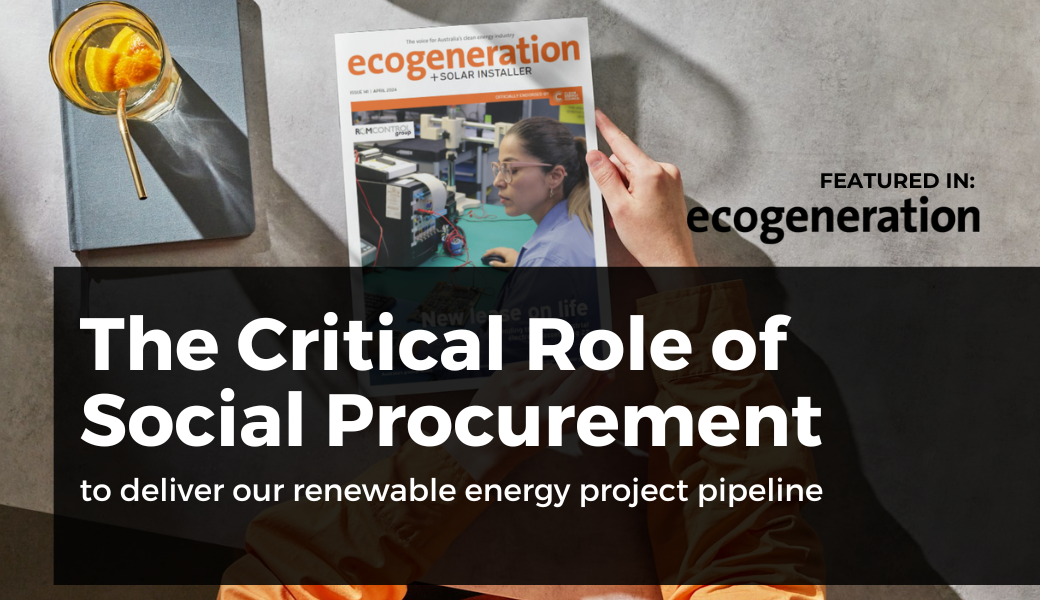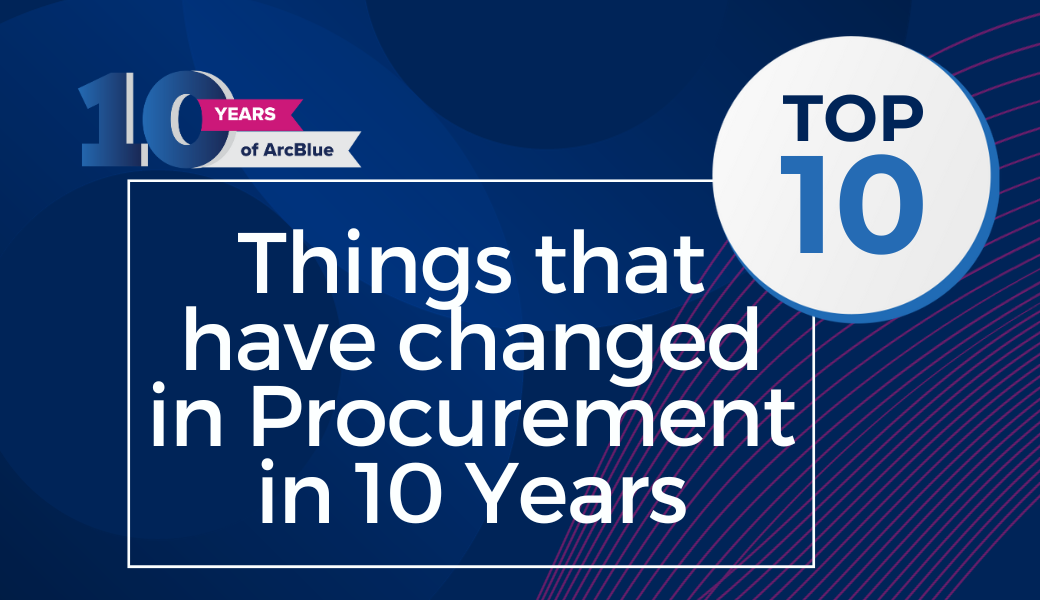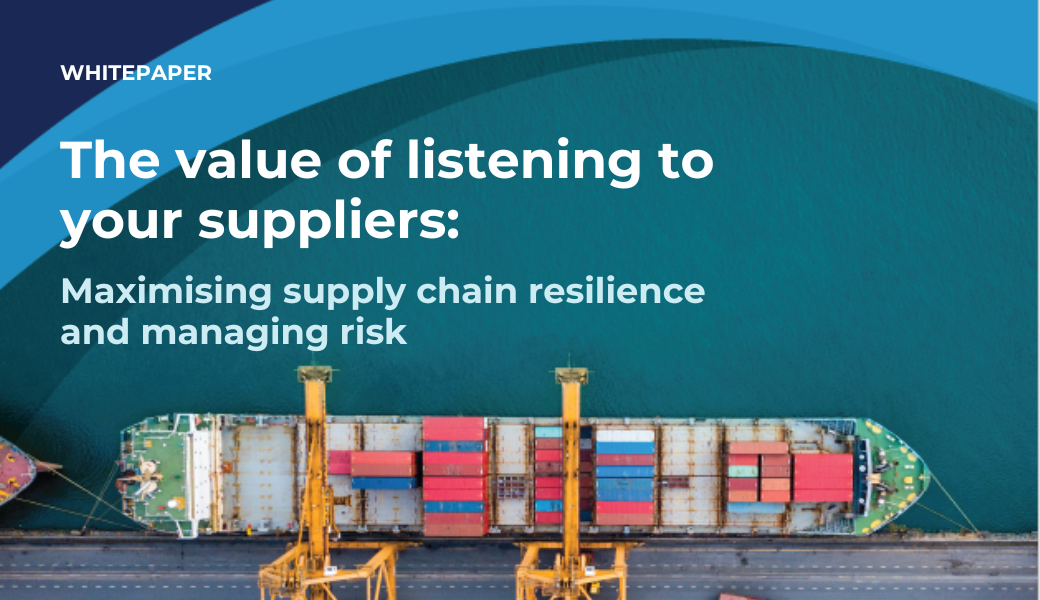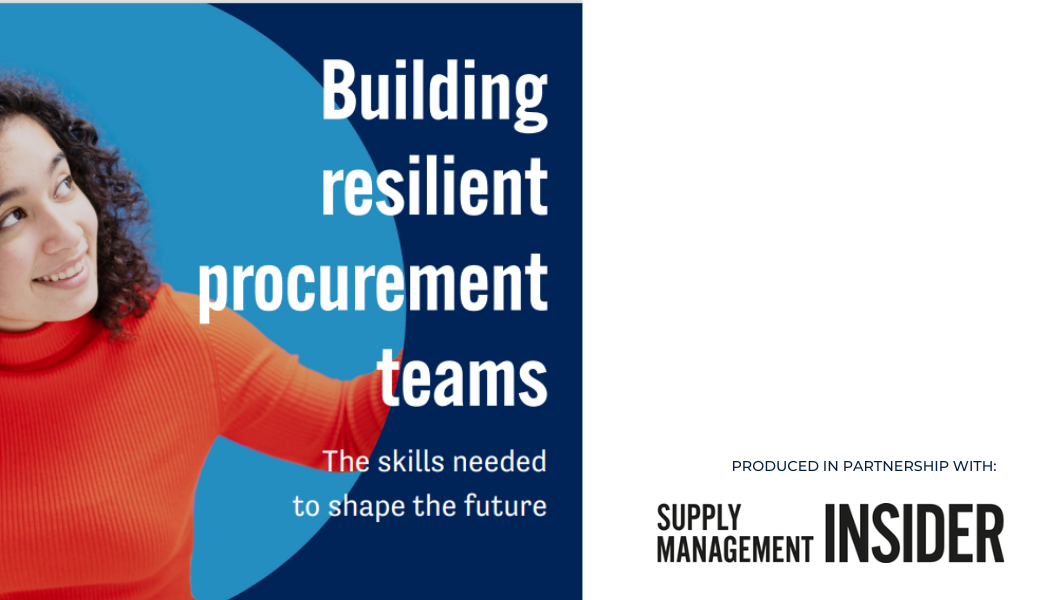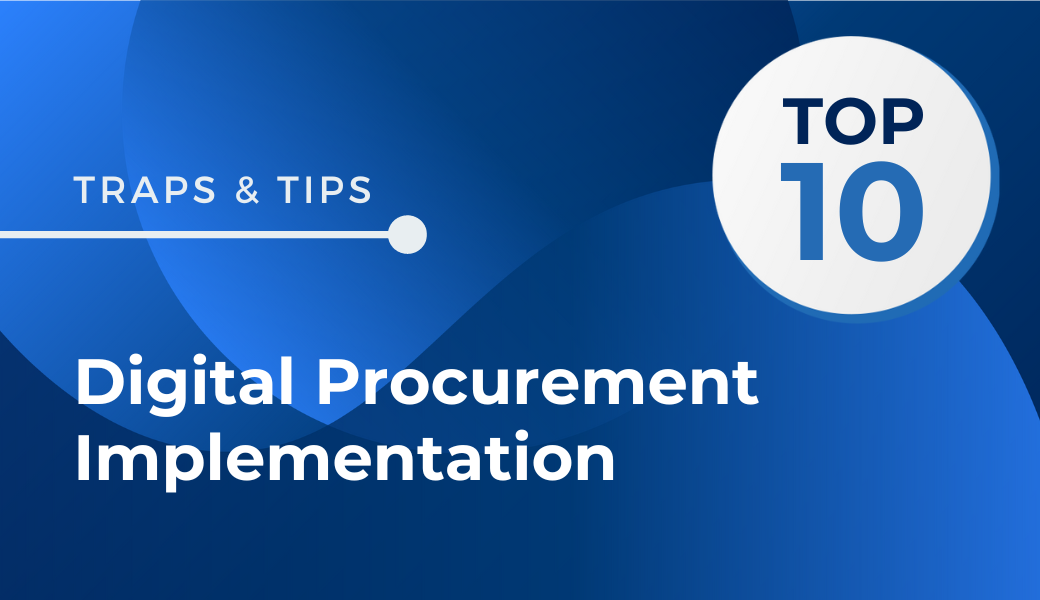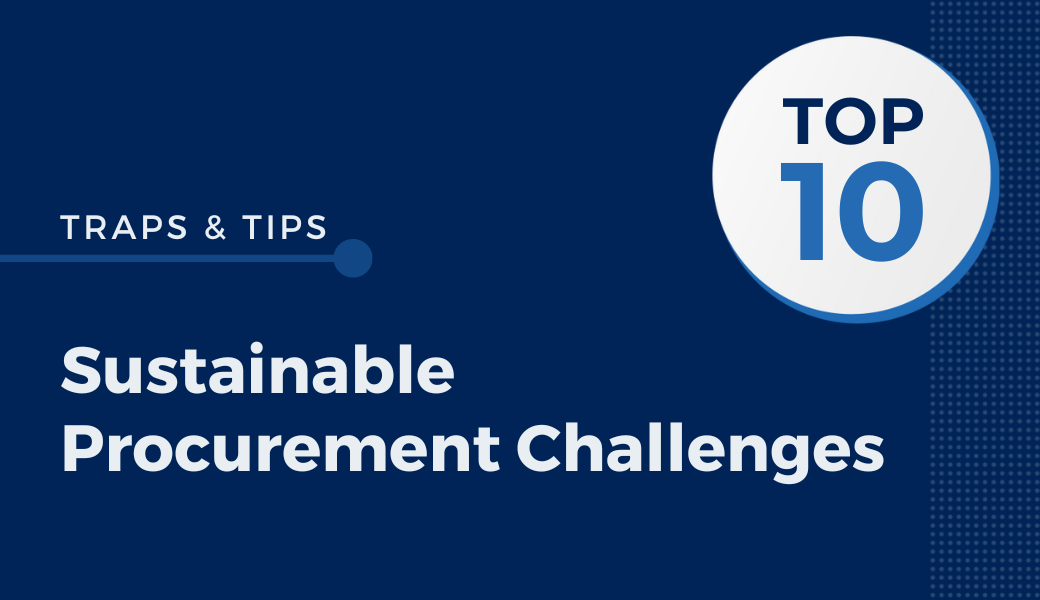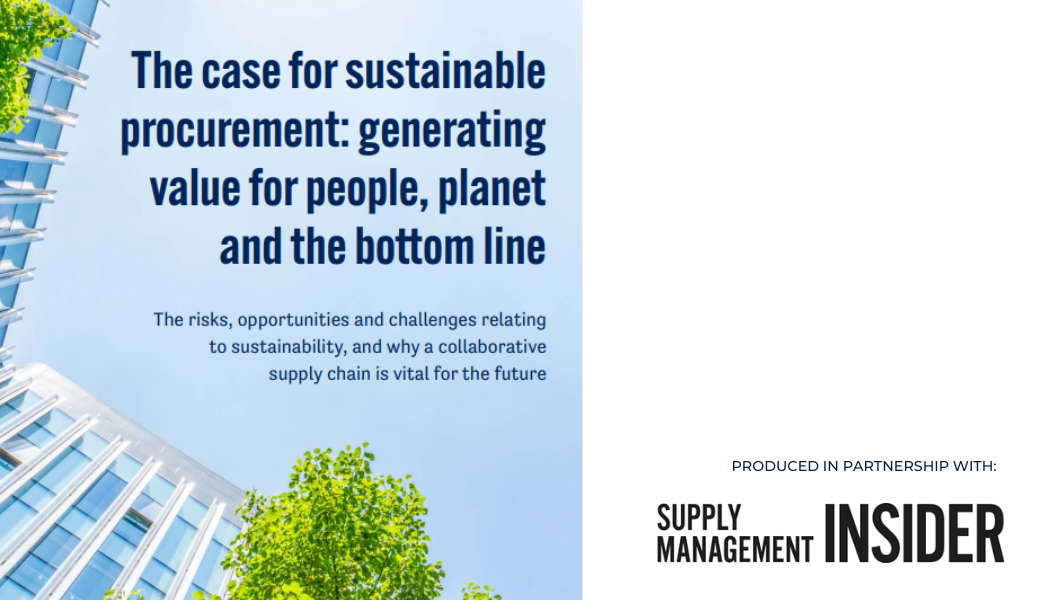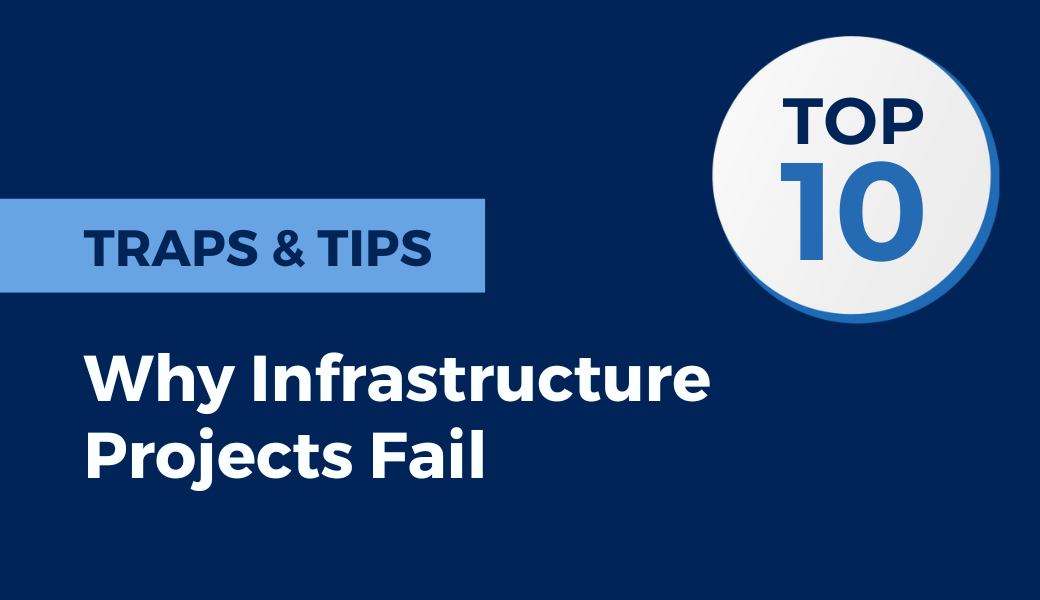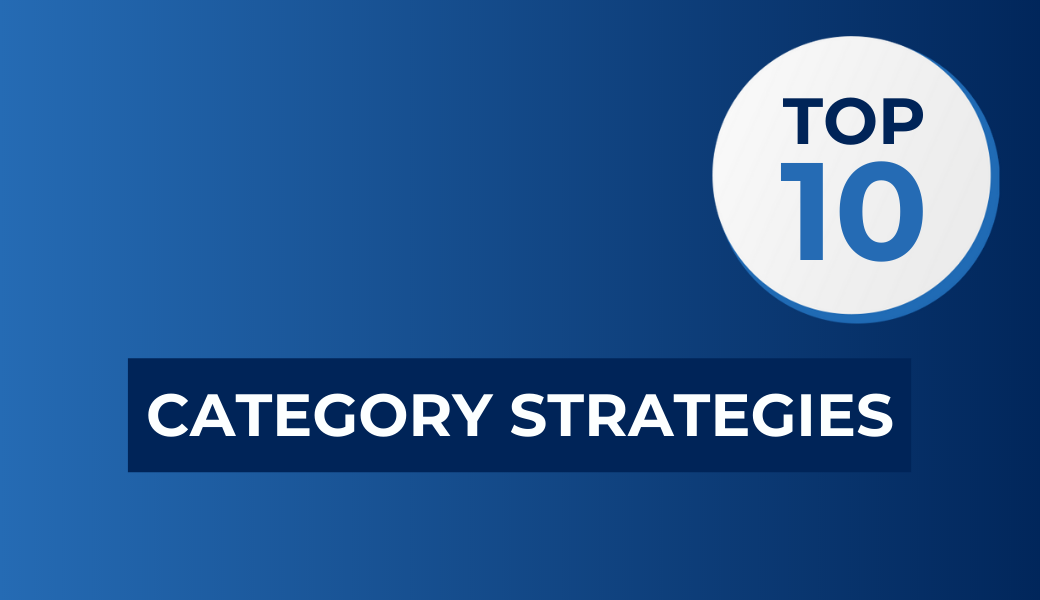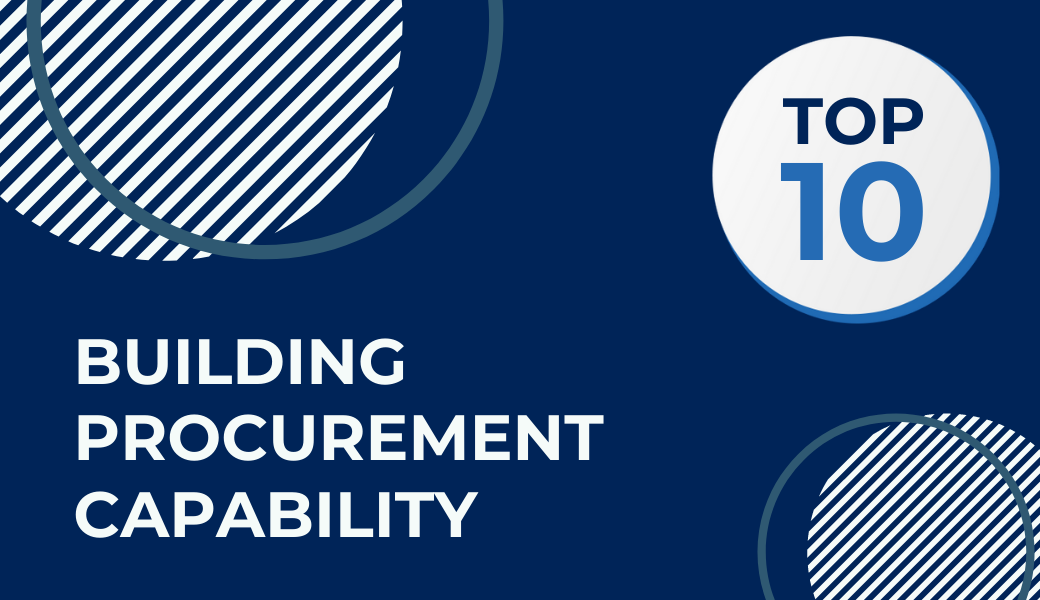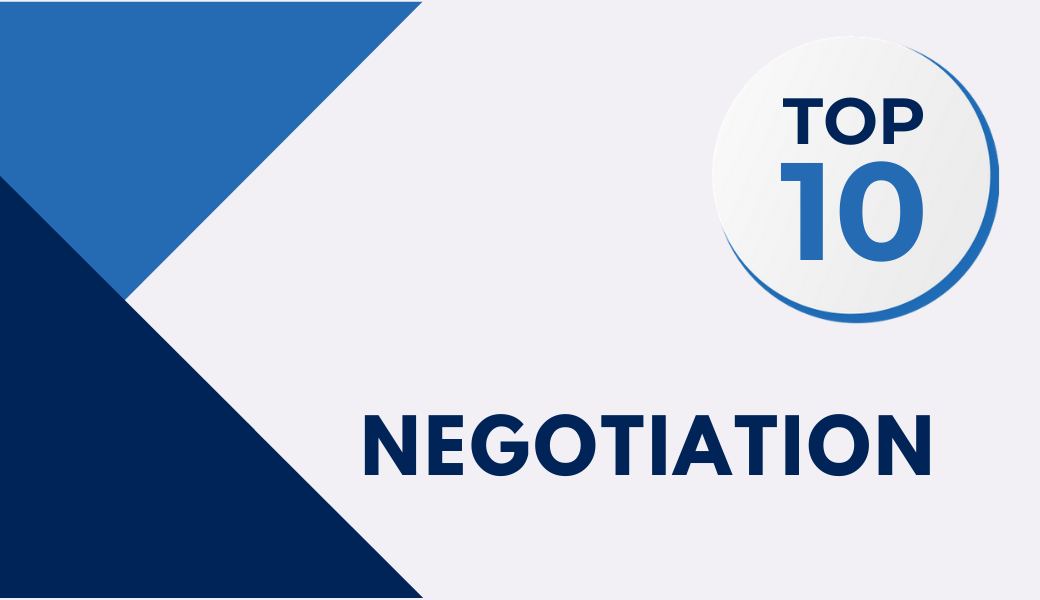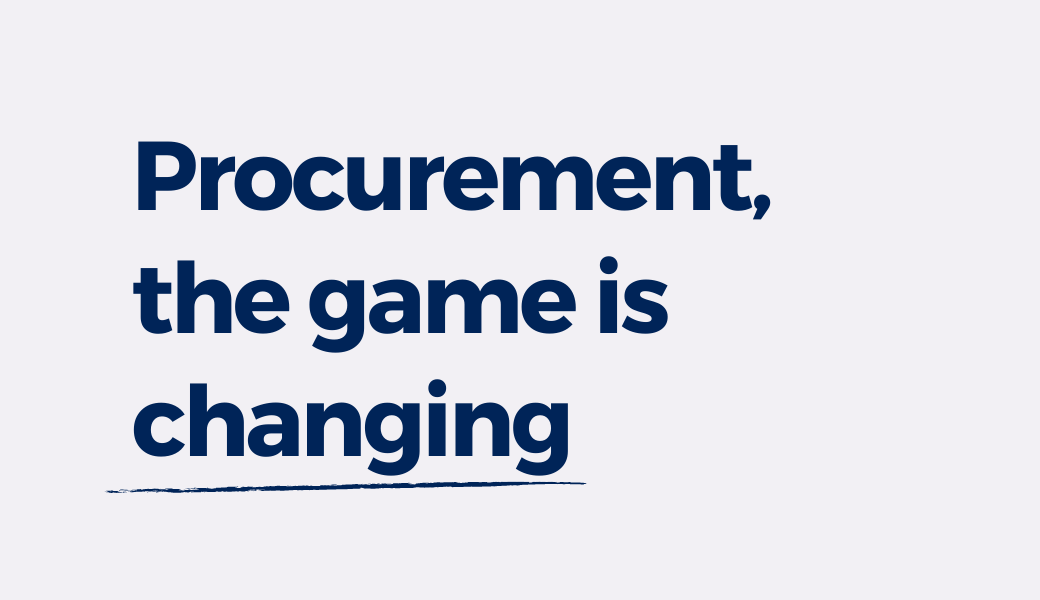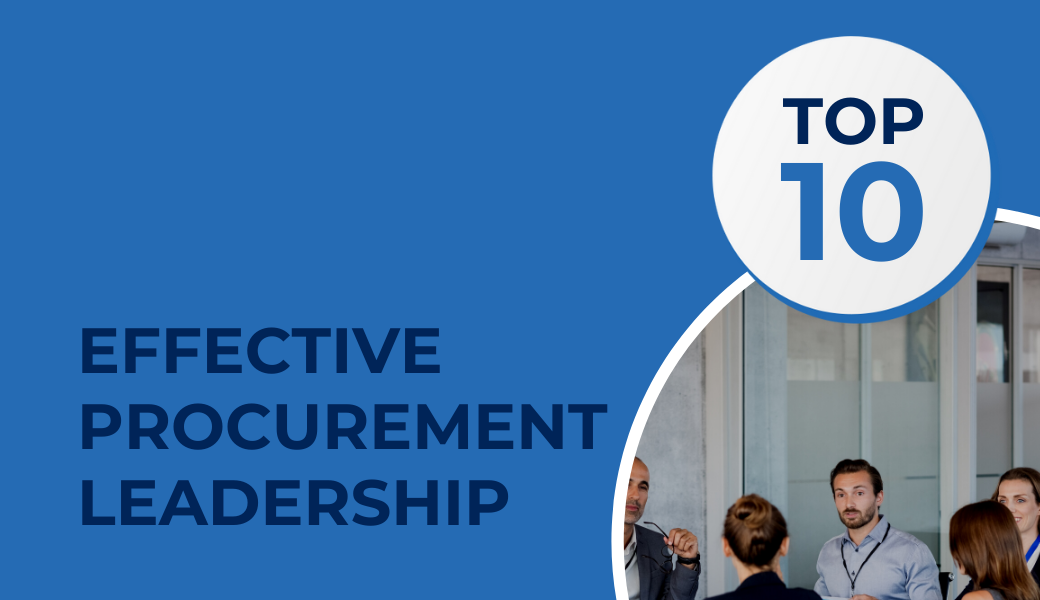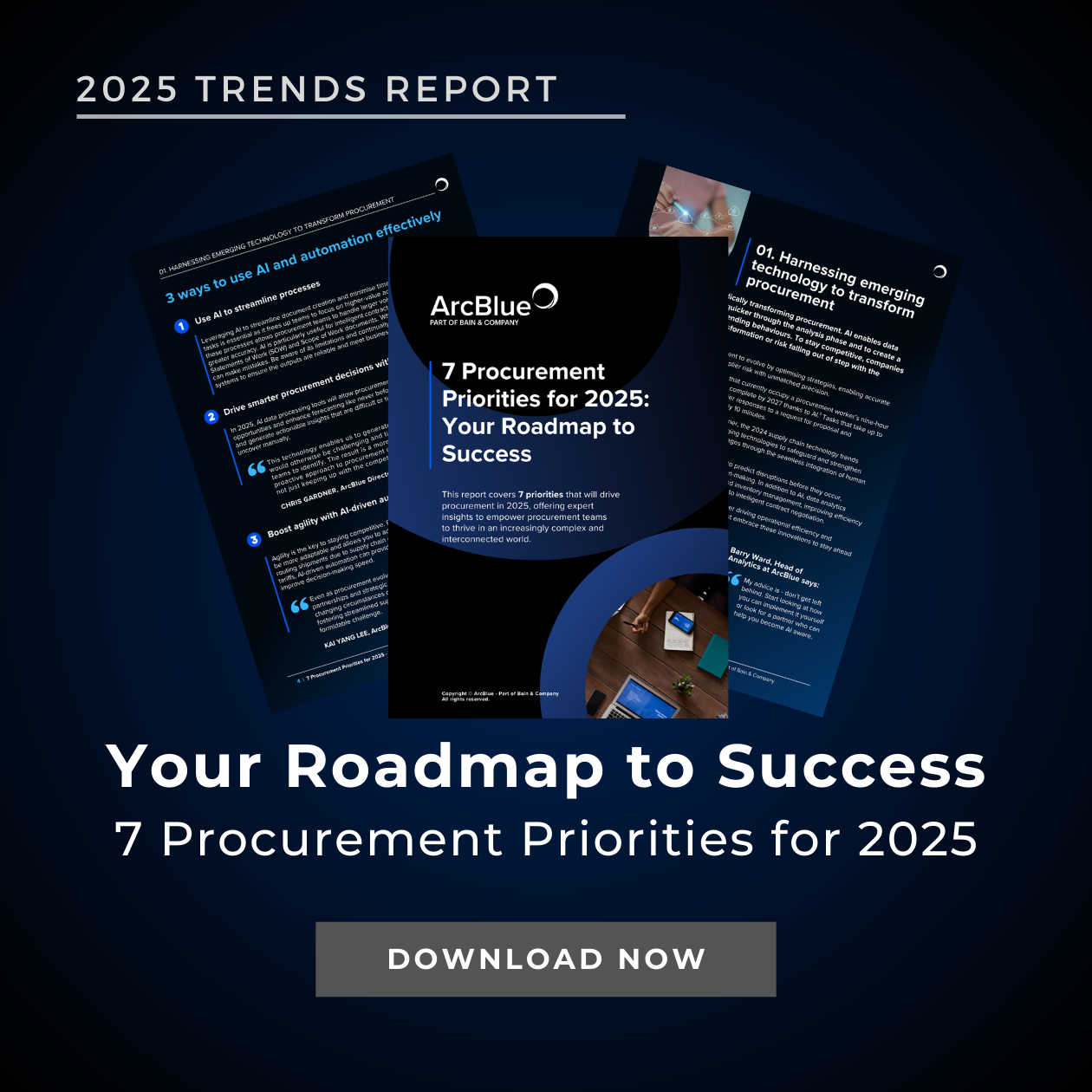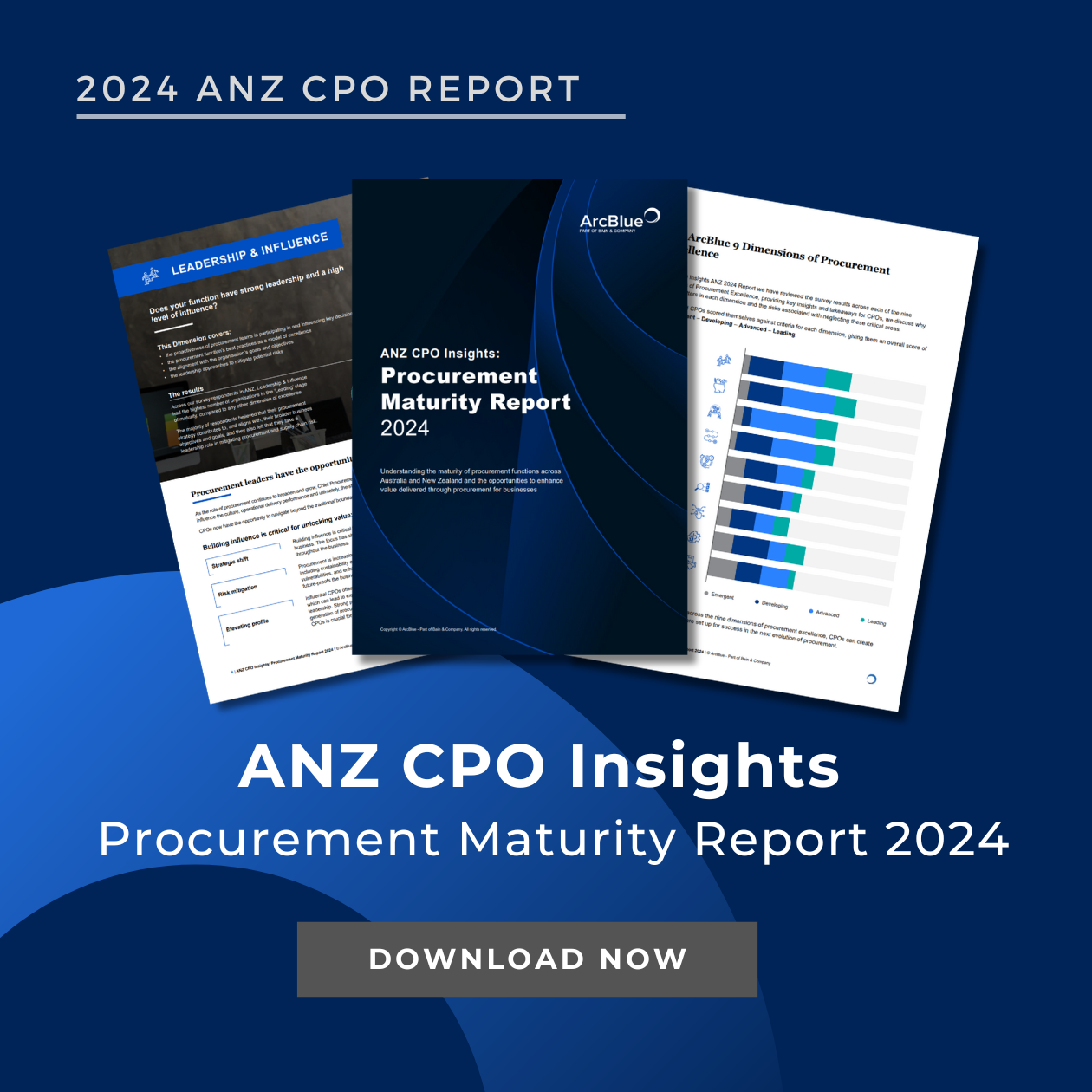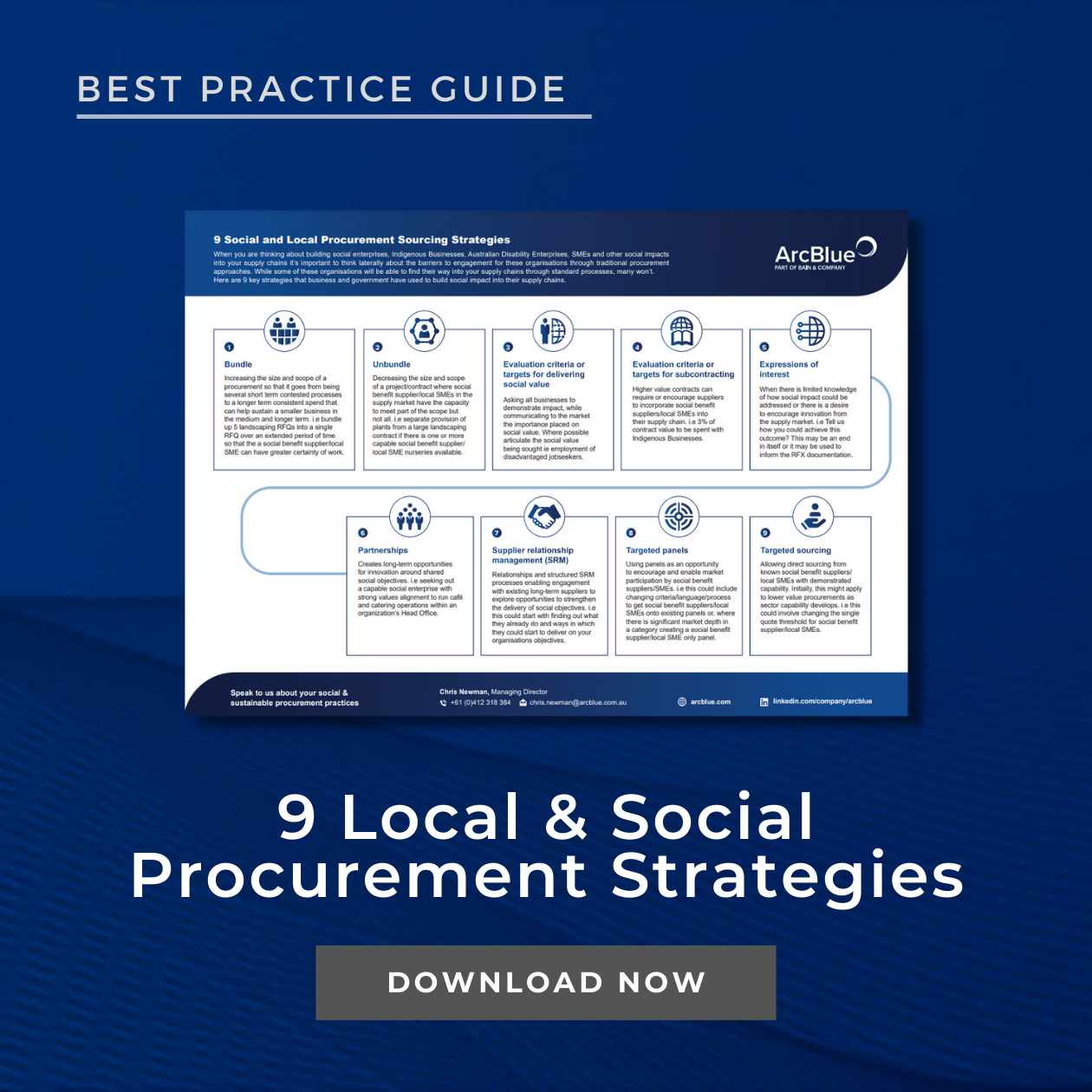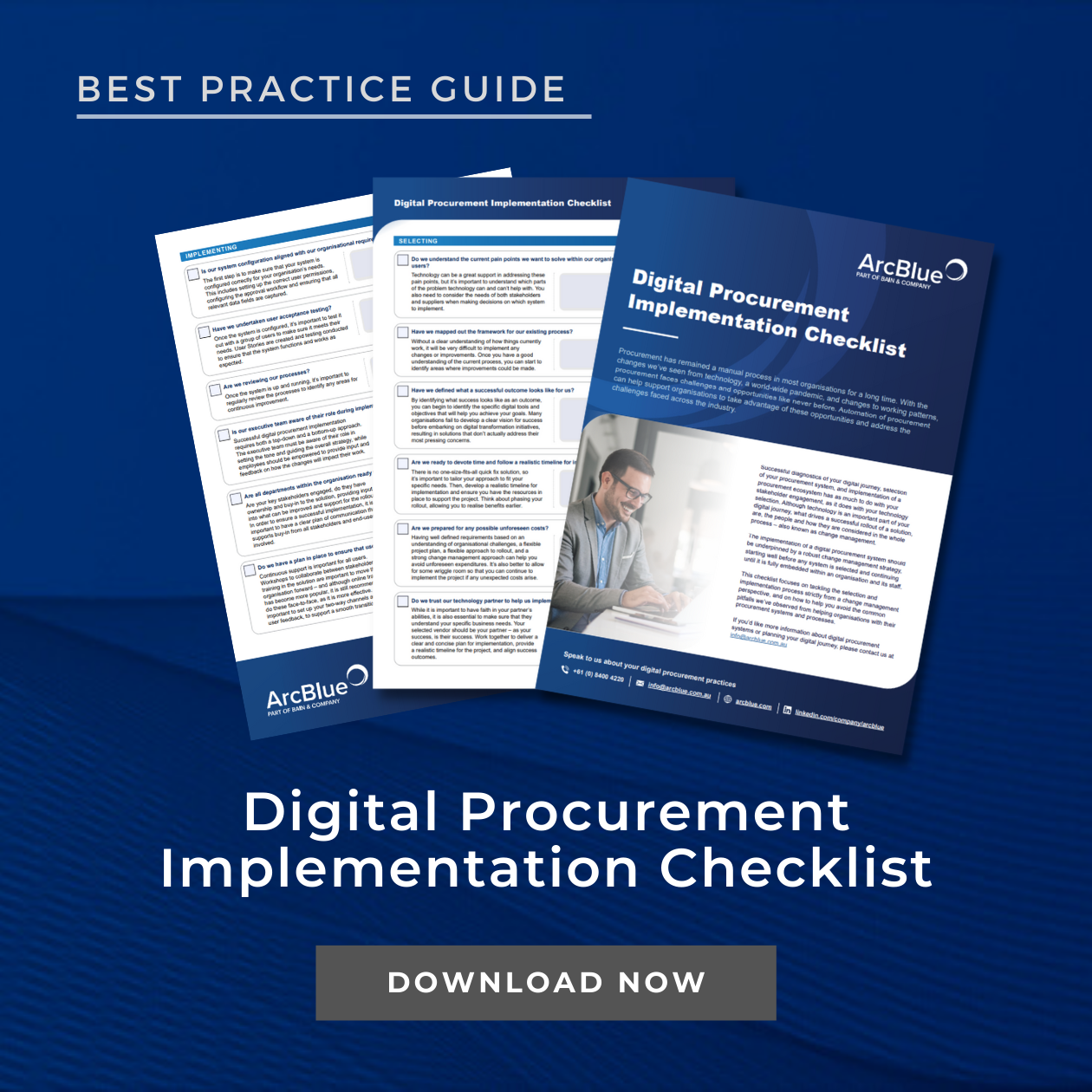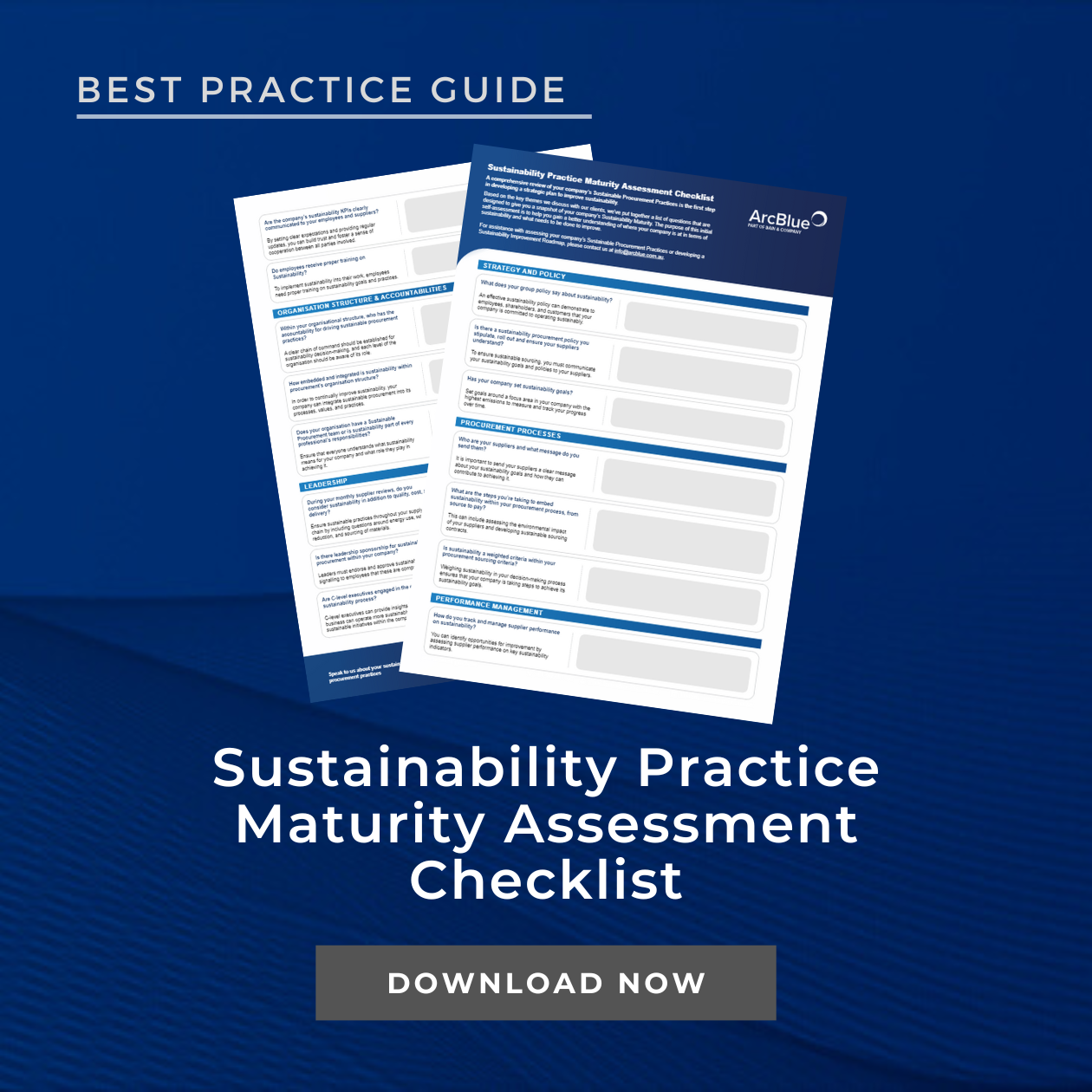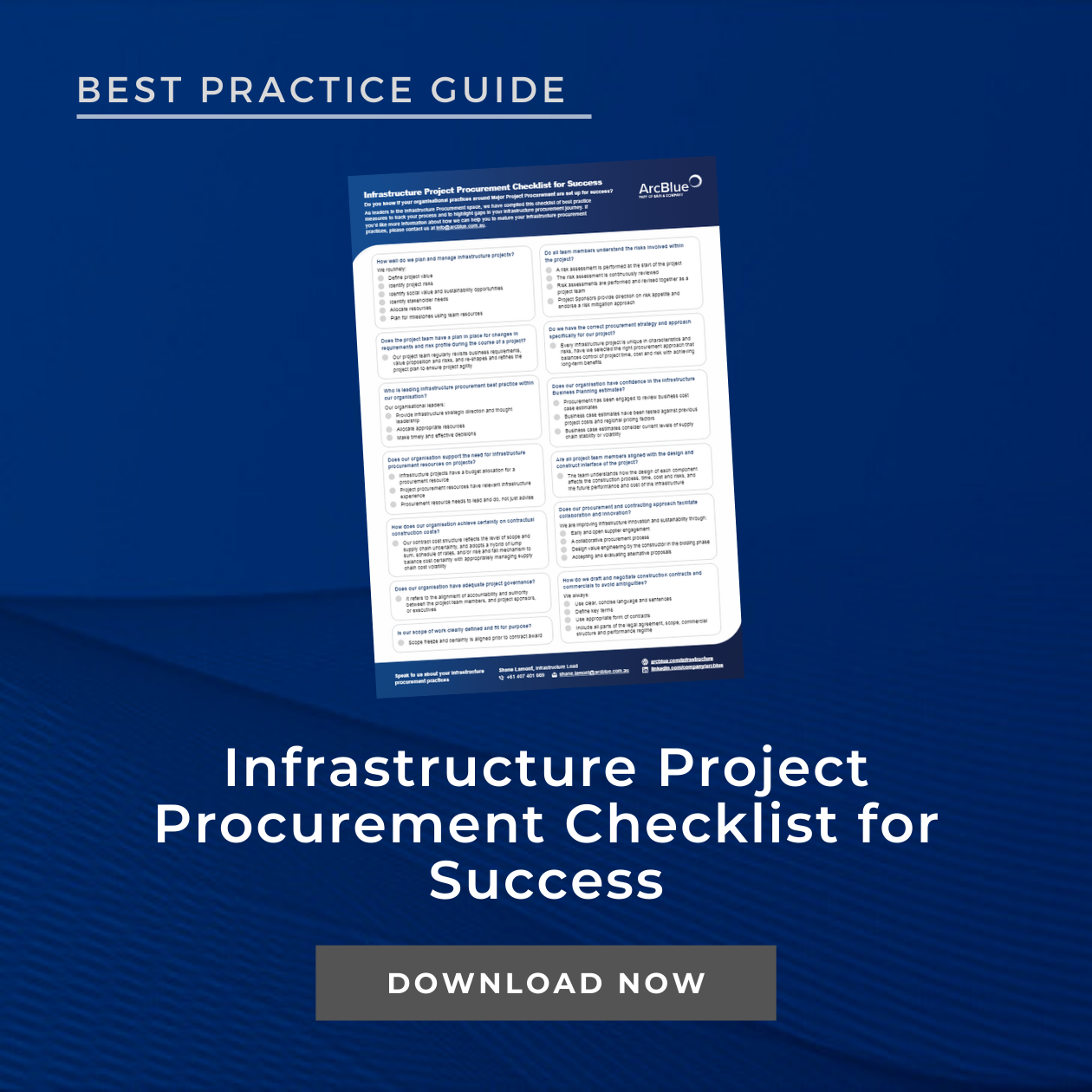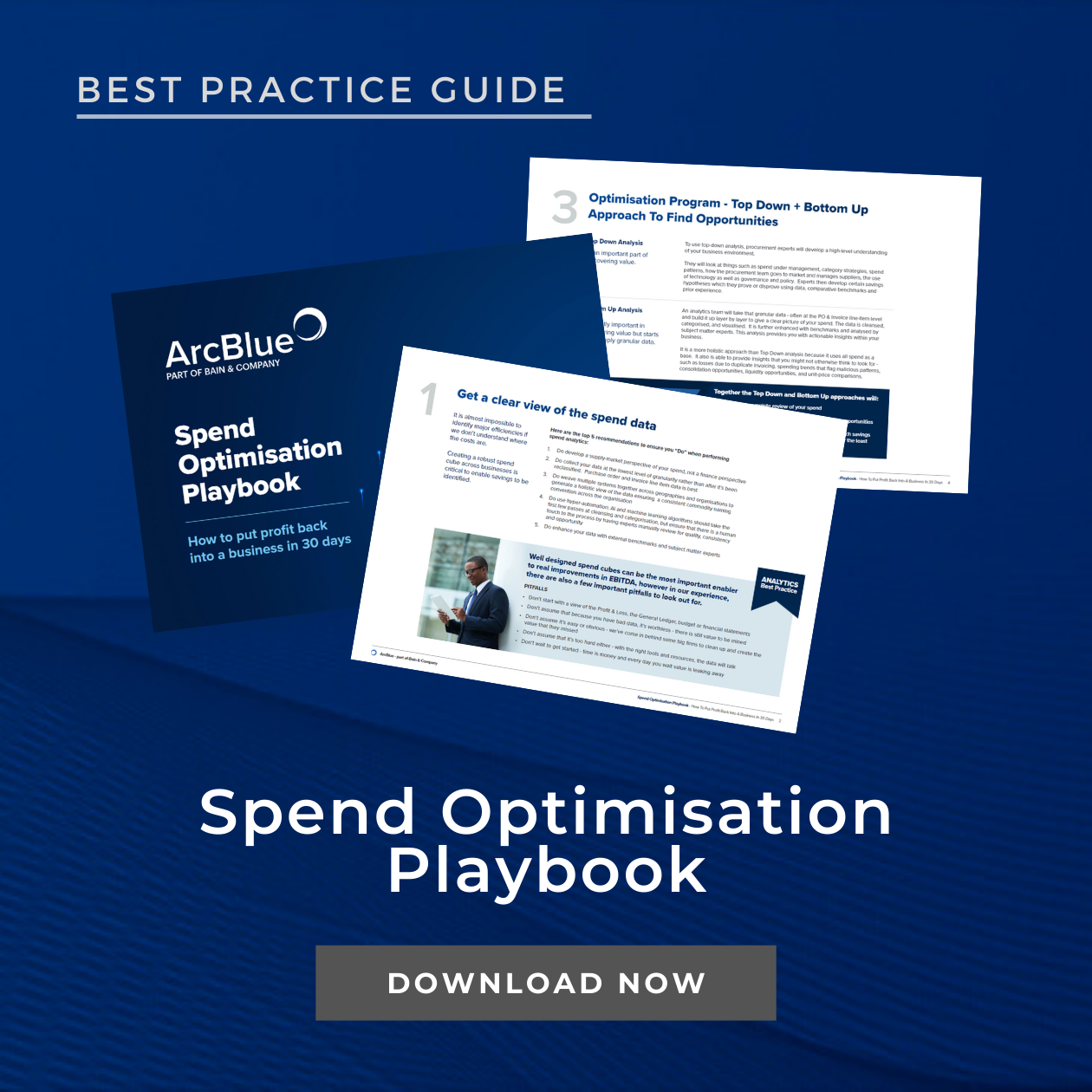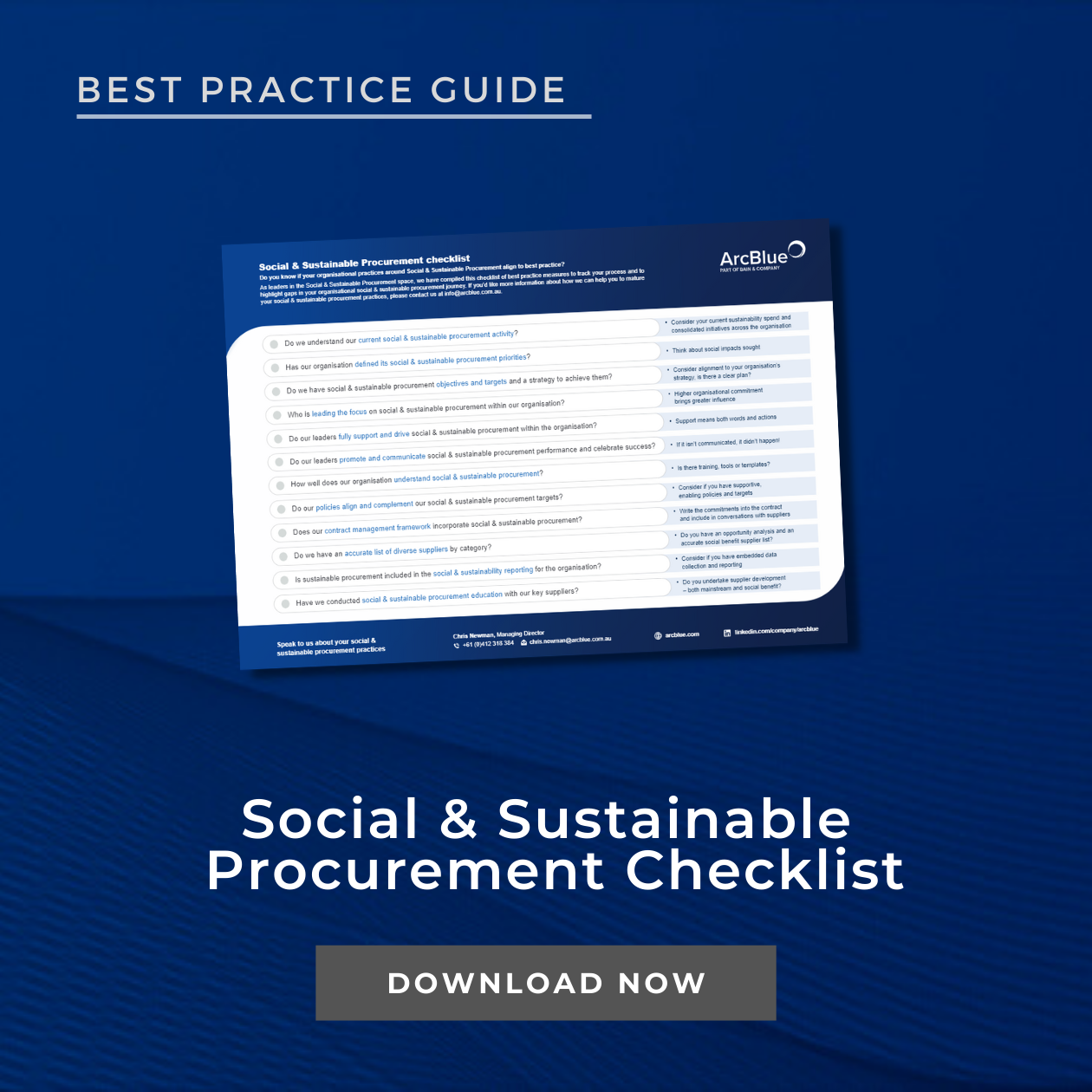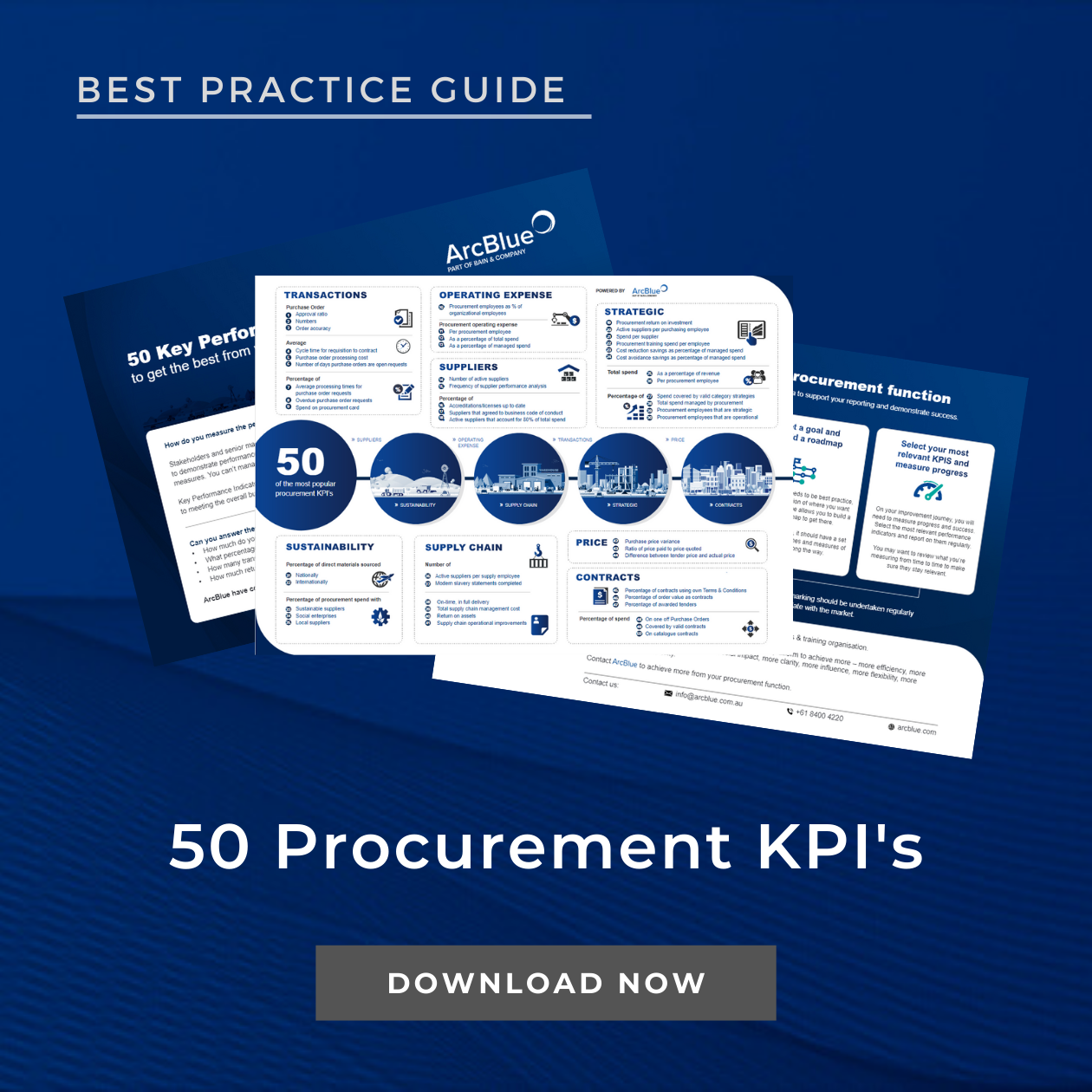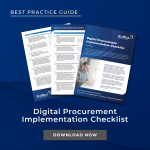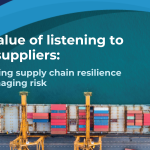- WHITEPAPER
Building Resilient Procurement Teams
The skills needed to shape the future
May 2023
Executive Summary
Over the past decade, we’ve seen business models turned on their head by globalisation, the influx of emerging technologies and an increased focus on ethical and environmentally sustainable supply chains. The pace of change has unveiled a worldwide talent shortage where companies are struggling to retain and attract procurement and supply chain professionals.
This whitepaper, produced by Supply Management Insider in collaboration with ArcBlue, explores how procurement is evolving, the challenges the function is facing and the skills and competencies required for the future generation of procurement professionals. We discuss the demand for talent, the appeal of a career in procurement, and the responsibility for organisations to build the right blend of capabilities and skills required to succeed in our changing and often volatile procurement landscape.
Produced in partnership with:

Authors
Related Services
Understanding procurement capability and capacity today
Businesses have seen a wave of unprecedented challenges in the wake of the pandemic, testing the resilience and flexibility of procurement teams. The increased spotlight on procurement, plus the complex and dynamic nature of supply chain structures, is changing the skills required for a successful career in this field.
Leaders are scrambling to find and retain the talent they need to face the key challenges of 2023 and beyond – from supply chain resilience, sustainability, risk, cost control and the function’s growing reliance on technology.
According to the CIPS/Hays Procurement Salary Guide 20221, 46% of respondents cited attracting and retaining staff as two of their top five challenges, up from 34% in 2021.
The pandemic inspired an increase in job movement and it has become a candidate’s market. With fierce competition for talent, coupled with inflation and rising prices, prospective employees are able to demand higher salaries.
ArcBlue’s Director of Learning and Development, Jacqui Priestly, explains that this has led to a perfect storm where junior candidates are being promoted quickly and are earning salaries that are disproportionate to their experience.
Gaps in expertise begin to show at middle-management level where procurement professionals don’t necessarily have the skills and experience to navigate procurement’s particular challenges.

Demand for talented procurement professionals is outstripping supply
Procurement as a business function has undoubtedly gained visibility since Covid-19 disrupted supply chains and gave procurement more executive input and influence.
“Procurement as a profession first matured from a governance process to become more and more visible. We now see it as a highly influential function within the company,” says Priestly.
Organisations are also recognising that procurement is vital to their success. Research from Bain & Company2 shows that world-class procurement organisations can reduce a company’s purchasing cost base by an average of 8-12% and deliver additional annual savings of 2-3%.
Businesses now want to invest in their procurement functions but demand for skilled employees is outstripping supply. In the CIPS/Hays Procurement Salary Guide 2022, 73% of employers said they struggled to find the right talent, citing applicants’ salary expectations, competition from other employers and lack of sector skills or experience as key challenges.

How has procurement changed and what new skills are required?
Looking to the future, Chris Hampden, director for South East Asia at ArcBlue says: Supply chain transparency, resilience and sustainability will continue to be key challenges for procurement. Particularly in more consumer-driven industries, the need to truly understand and be held accountable for your supply chain requires a slightly different skill set within the procurement space.”
A second key challenge for procurement is cost control, especially in an inflationary environment. “There’s a need for capable procurement people to help drive savings and respond to requests for price increases,” said Hampden. “If suppliers are advising that prices are going up due to inflation, you need procurement people who are able to analyse the cost breakdown and identify if these cost increases are legitimate.” Hampden also cites emerging technology as a challenge, questioning how procurement will adapt with the advent of AI, blockchain and increasing amounts of data to analyse.
When it comes to changing skills and capabilities, Hampden is an advocate for thinking strategically, rather than operationally, to address some of the challenges. Geopolitical tensions mean procurement teams have to think more creatively about how and where they can source products. For example, if a supply chain is affected by China-US political tensions or Russian sanctions, procurement needs to think creatively about where else they can source from. This requires specialist knowledge of global capability and supply but also adaptability.
Procurement may once have had a purely transactional focus on purchasing. Now it requires more – it needs people with the agility to respond to evolving and complex situations.
2. David Schannon et al, Unearthing the hidden treasure of procurement, Bain and Company, October 2016

Change calls for new capabilities and leadership styles
A report3, commissioned by Wayfinder and produced by Deakin University’s Centre for Supply Chain and Logistics, identified some key capability gaps in the procurement and supply chain sector. These are connectedness, leadership at all levels from mid to senior management, problem solving, emotional intelligence and the ability to meet ESG demands.
To build a resilient procurement team, you will need a blend of technical ability and creative thinkers who can build strong relationships with internal stakeholders and suppliers.
‘Soft skills’ are now on the top of employers’ wish lists when hiring procurement talent – such as relationship management, influencing, communication and negotiation.
In a recent report by Proxima4, Rob Turner, former head of procurement at Amazon, suggests procurement professionals in 2023 need to be business problem-solvers.
“Building a procurement team in the coming year means looking beyond years in the industry and identifying people who can foster strong internal relationships, look beyond a category plan, and build strong commercial relationships,” says Turner. “From ideation to delivery, it’s about how people can work across the business to identify business problems and effect change.”
The function also needs core skills in areas which haven’t historically sat with procurement, including sustainability and carbon accounting and knowledge of geopolitical risks within the supply chain. Acquiring these skills, either by hiring new people or upskilling your existing team is going to be important.
“The beauty of more people studying supply chain means the profession will see an influx of fresh thinking and bright minds who have expertise in new technology like AI”, says Jacqui Priestly, Director of Learning and Development at ArcBlue. “Potentially, the best way to approach the talent mix moving forwards will be to blend new and more seasoned professionals. Balance experience with more junior people to find the optimal mix of talent across the whole team.”
One of the key talent shortages cited in the Wayfinder report3 is a lack of data analytics skills. But the issue is deeper than simply attracting talent with data analytics qualifications. Procurement will need the capacity not only to understand and analyse data, but also to combine this with supply-chain knowledge and experience to use it effectively. It is a delicate balance and tricky to find.
As Hampden says: “We have some really great data scientists in our company who have spent 10 years in procurement, so they understand the value. It’s not necessarily a natural thought process [for a statistics or analytics graduate] to consider how they could help a company optimise their operations and identify massive savings by turning raw data into insights.”
To build new capabilities in your team, a competency assessment is a good place to start.
“Competency assessments are a great way to understand candidates’ skills and knowledge during the recruitment stage,” says Priestly. “Then, once you have the procurement team in place, a competency assessment shows the blend of skills across the team. You may not get one person who knows everything, but you can balance the blend of skills you need in your business to make sure it’s successful.”
3. Wayfinder and CSCL Talent and Capability Laboratory, A view from the top: Current workforce challenges in supply chain and logistics, September 2021
4. Proxima, 2023 CPO Report: What’s next for procurement March 2023

How can a career in procurement and supply chain be more attractive to candidates?
For ArcBlue’s Chris Hampden, a career in procurement and supply chain has always seemed appealing, even more so as the function has evolved.
“Since Covid-19 disrupted the supply chain, procurement has had a louder voice than ever,” he says. “While you’re not driving sales, you are at the forefront of shaping the success of a business because your ability to have a competitive and sustainable supply chain allows you to unlock future sales and protects you from future risks.”
For Hampden, it’s a rewarding career that calls for strategic thinking on issues such as: “Where should we build our supply chains? How do we make sure our supply chain is sustainable? How do we make sure we don’t expose ourselves to risks around human rights? And how do I better leverage my buying power for the benefit of the company?”
In the CIPS/Hays Procurement Salary Guide 2022, 70% of respondents reported that the perception of procurement has improved in the past year, with 61% saying procurement is very much valued in their organisation. Yet, findings of the Wayfinder report suggest that most people have ‘fallen’ into supply chain, rather than actively pursuing a career in the space, and companies still struggle to attract younger workers, particularly women.
Of the 21 C-suite leaders surveyed, many acknowledged not enough has been done to promote supply chain careers at universities, and more broadly. Working within supply chain can provide interesting career paths for people who have studied in a range of areas. As one participant says: “Supply chain is a very exciting place to develop your career in analytics, robotics or software engineering, but we’ve just got to tell that story better.”
While it’s undoubtedly an attractive time for a career in procurement, there are still steps to be taken to better promote the function. When courses reflect the current challenges in the industry and equip candidates with the right skills for a nuanced career in procurement, this should lessen talent shortages.
Organisations too will need to bolster graduates and existing employees with training, mentoring and career pathways. Boosting the internal perception of the supply chain’s role within an organisation could help attract valued employees from other functions to move sideways into procurement.
As Priestly says: “Cross-functional moves can build agility in an organisation. Making space for learning is also key, so that individuals feel more invested in the company and are likely to stay longer.”

Challenges for leadership
The industry has changed rapidly and careers look very different now to the jobs many chief procurement officers started in. Outdated top-down leadership no longer stands – people today want autonomy, flexibility, recognition and career progression. As a result, leaders need to adapt their styles to coach, motivate and engage their workforce.
Organisations have high expectations that a procurement candidate will be tech-savvy and comfortable operating in a digital environment, as well as able to navigate complex stakeholder relationships. It’s not easy to find this delicate mix of process and analytical skills coupled with emotional intelligence and creativity. But those leaders who invest in upskilling their teams are likely to see positive change in employee engagement and will be more likely to meet the demands of the changing industry.
Hampden has seen the demand for procurement consulting increasing as companies use outsourcing to plug the talent gap. “Organisations need to deliver cost savings but are finding it challenging to find the right people,” he says. “Some leaders are struggling and looking at restructuring to be more effective. Some are considering outsourcing or service centre approaches. Others are prepared to pay more money for talent.”
But as Hampden says: “You can’t always keep getting the chequebook out, you need to have a sustainable business model. Talent management is key, along with collaborations with education and mentoring opportunities.”

Training and development is crucial for employee motivation and retention
Jacqui Priestly, Director of Learning and Development at ArcBlue advises: “Motivation and retention are intrinsically linked. If you are enjoying your job and are feeling challenged and passionate, you will be motivated to work and stay in the company. Career development is often a key element of motivation, so make sure team members have the opportunity to learn what they need – not just now, but also for their next role. Build a learning journey that is right for them, combining formal training, on-the-job experience and project based work. Pair team members up with subject matter experts, build assets or research centres for self-paced learning and offer training opportunities.
Role clarity is another factor that is key to motivation and working closely on both job design and internal communication around roles and responsibilities will pay dividends. As team members become more senior, it becomes more important to ensure that the goals and objectives you’re setting for them are linked to the wider team and organisational objectives.
For graduates, it’s crucial that training and coaching is delivered in a structured way to help people in their early careers find their feet and excel in procurement. Because there are so many different angles to procurement, getting up to speed is not something you can do quickly, and companies need structured learning programmes to provide graduates exposure, as well as shadowing opportunities to stretch and grow skills and assist them to find their niche.
When it comes to retention, candidates today are looking for flexibility. The right remuneration doesn’t necessarily only mean money – consider the whole package and offer a balance of flexibility plus learning and development opportunities to ensure you keep your people motivated.”

Succession Planning
As in all industries, succession planning is crucial to prepare employees and equip them with the skills and knowledge to ensure seamless transitions and business continuity during absences and after employees leave a role. Creating succession plans is an excellent way to show employees that they’re valued.
When employees are included in a succession plan, they have clear direction on their personal career advancement and are more likely to remain with their organisation. While procurement grapples with talent shortages and high job mobility, employers need to work extra hard to invest in their workforce, help fill the skills gap and improve retention.
Succession planning ensures existing leaders share knowledge to prepare emerging leaders to step into their shoes. This helps organisations retain institutional experience in periods of change and allows for easier transitions.
Conclusion
Procurement today faces the combined challenge of geopolitical volatility, fast-paced technological change, an increased focus on sustainability and a capability and talent shortage. Add to this climate change, the aftershocks of a global pandemic and the prospect of new challenges tomorrow.
A company’s ability to weather a storm is only as robust as its people. Although the talent shortage is impacting procurement teams all over the world, procurement is also evolving into an exciting, dynamic and demanding career. Equipped with knowledge of the key capabilities and skills required to address the coming challenges, organisations should set about investing, training and nurturing the next generation of talent to set themselves up for success. Resilient procurement teams of the future will need a blend of specialised expertise and knowledge in supply chain, data analytics and sustainability paired with additional qualities of leadership, innovation, and agility.
Join the conversation: How can your organisation tackle the current procurement capability and capacity shortages through a considered learning and development approach?
INSIGHTS
RESOURCES & DOWNLOADS







